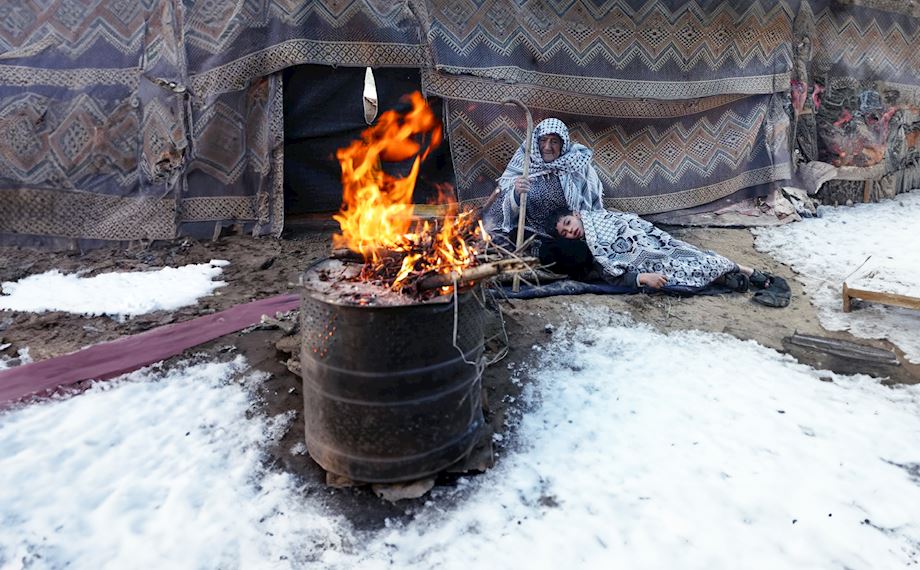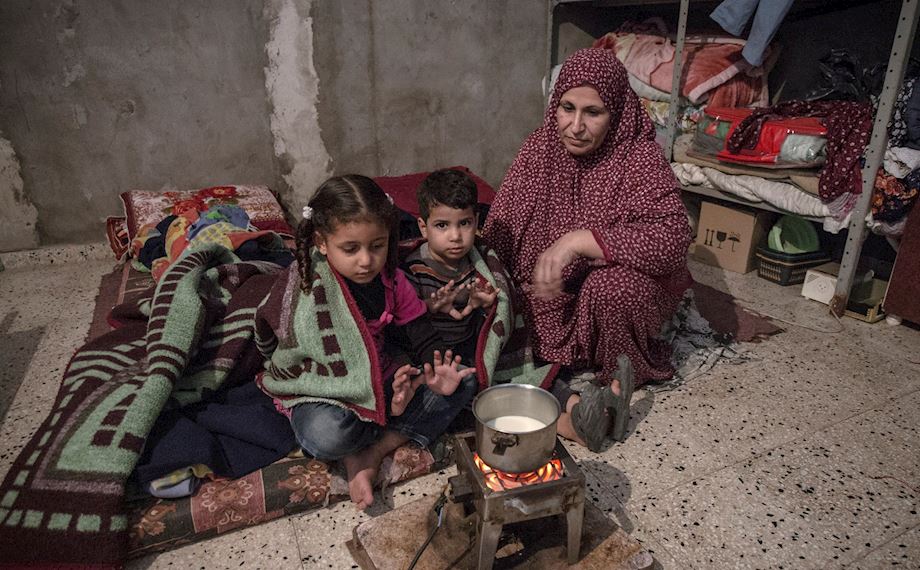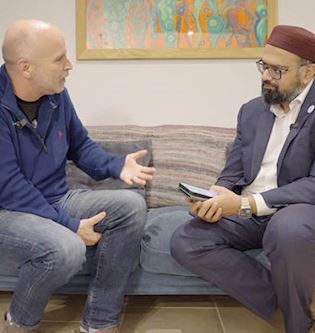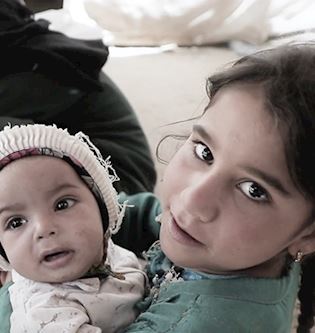The Islamic Perspective on the Winter Blues & SAD

Inspirited Minds is here for you. If you need support with SAD or anything else related to mental health, we have made it our duty to do what we can. Use our Get Help page to get support.
It’s winter, it’s dark and everything feels dull and gloomy. You may feel lethargic and unmotivated to do anything – but at the same time you feel a pang of guilt due to feeling ‘unproductive’. You get stressed and worried over your internal conflict, between listening to your feelings and listening to your thoughts – and the cycle goes on. Winter can thus become a lonely place filled with unhealthy thoughts and behaviour patterns – which can easily build up when not looked after.
It is important to know that you are not alone.
Seasonal Affective Disorder (SAD) is a type of depression that correlates with the seasons, and it occurs during the same seasons every year. Many people have an uplifting spring, a brilliant summer and then descend into the bitter darkness of winter. This cycle really impacts your mind, body and soul.
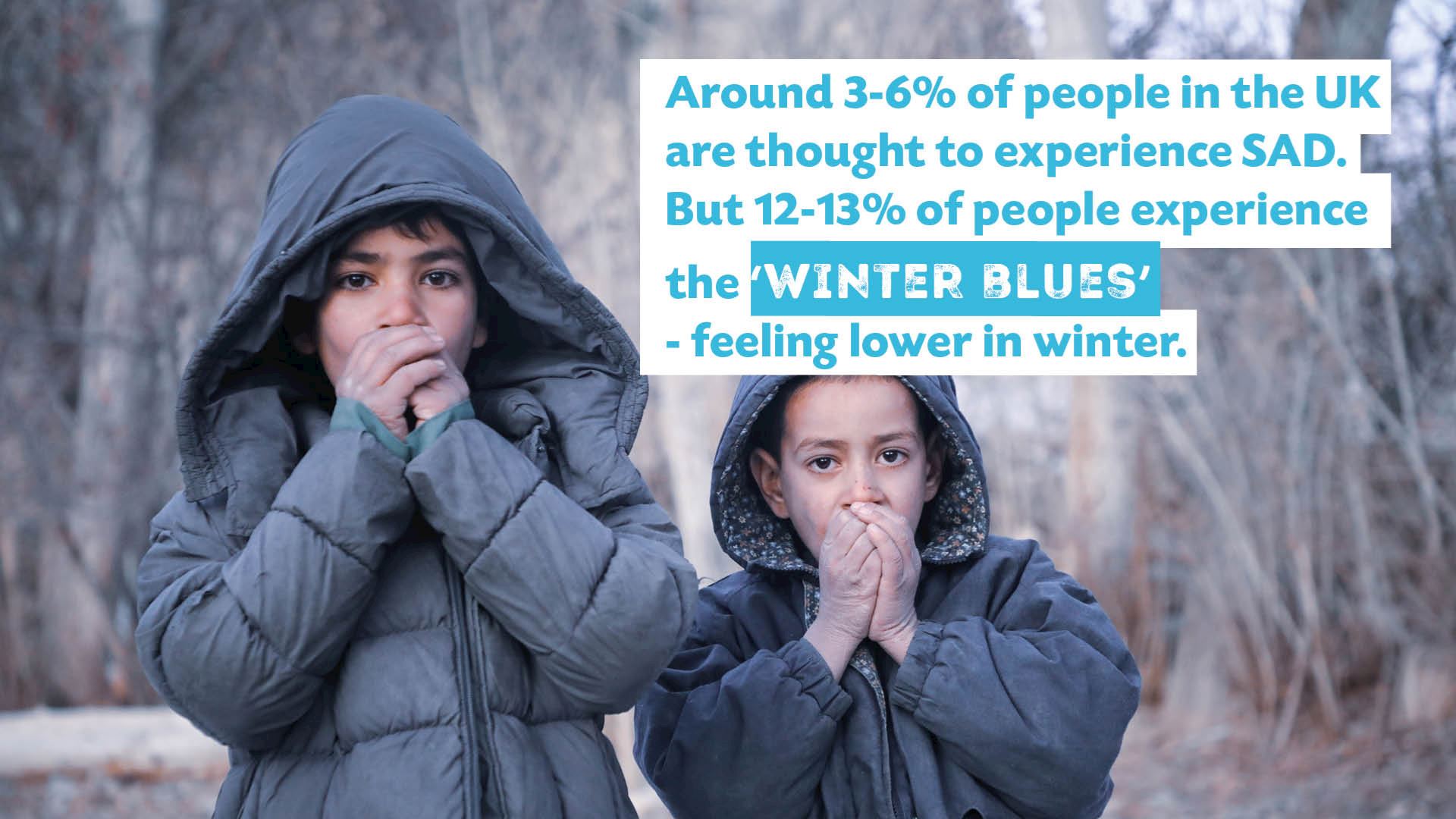
The causes of this disorder are not exactly concrete. We do know that part of the reason is the lack of sunlight people receive in winter. The reduced amount of sunlight prevents messages being sent to nerve cells – which affect the balance of brain chemicals, such as serotonin and melatonin. These special chemicals help us to maintain our mood, and so without them, we don’t function well, and a less than normal amount in our brains can trigger depression.
In this article, we’d like to discuss some practical ways for you to manage your winter blues – from a scientific perspective and an Islamic perspective.
Advice from your doctor
Any type of depression can become very difficult and irritating to live with. You just want to get on with life, but you feel totally paralysed. However, SAD can be successfully treated.
If you think you are experiencing SAD, we recommend that you talk to your GP. They will recommend the most suitable type of therapy for you, which could mean prescribing antidepressants or undergoing cognitive behavioural therapy.

The main recommendation GPs have for treating SAD is light therapy. This involves sitting next to a ‘light therapy box’, which mimics natural outdoor light and thus helps your chemicals get going when they’re not receiving sunlight. These devices can come in the form of desk lamps, wall lights etc. – so they are a simple and effective way of getting your mood back to normal!
Although light therapy and other therapies have proven to be successful – and we recommend you talk to your GP if you need to – there is another type of therapy which your GP won’t discuss with you. This involves a ‘spiritual’ approach.
As Muslims, we believe that our mind, body and soul are all connected. Our physical health impacts our mental health which impacts our spiritual health – and vice versa! We thus have a comprehensive perspective of the winter blues – they can and should be treated by talking to your doctor, but we should also see what the Qur’an and Sunnah have to say about these moods and emotions.
Special Emotions
Emotions are not simple, they are complex – but what we do know is that they can move through us. The word motion within emotion indicates that whatever we are experiencing will move through us, and there will be relief. This is also a promise from Allah, Who says:
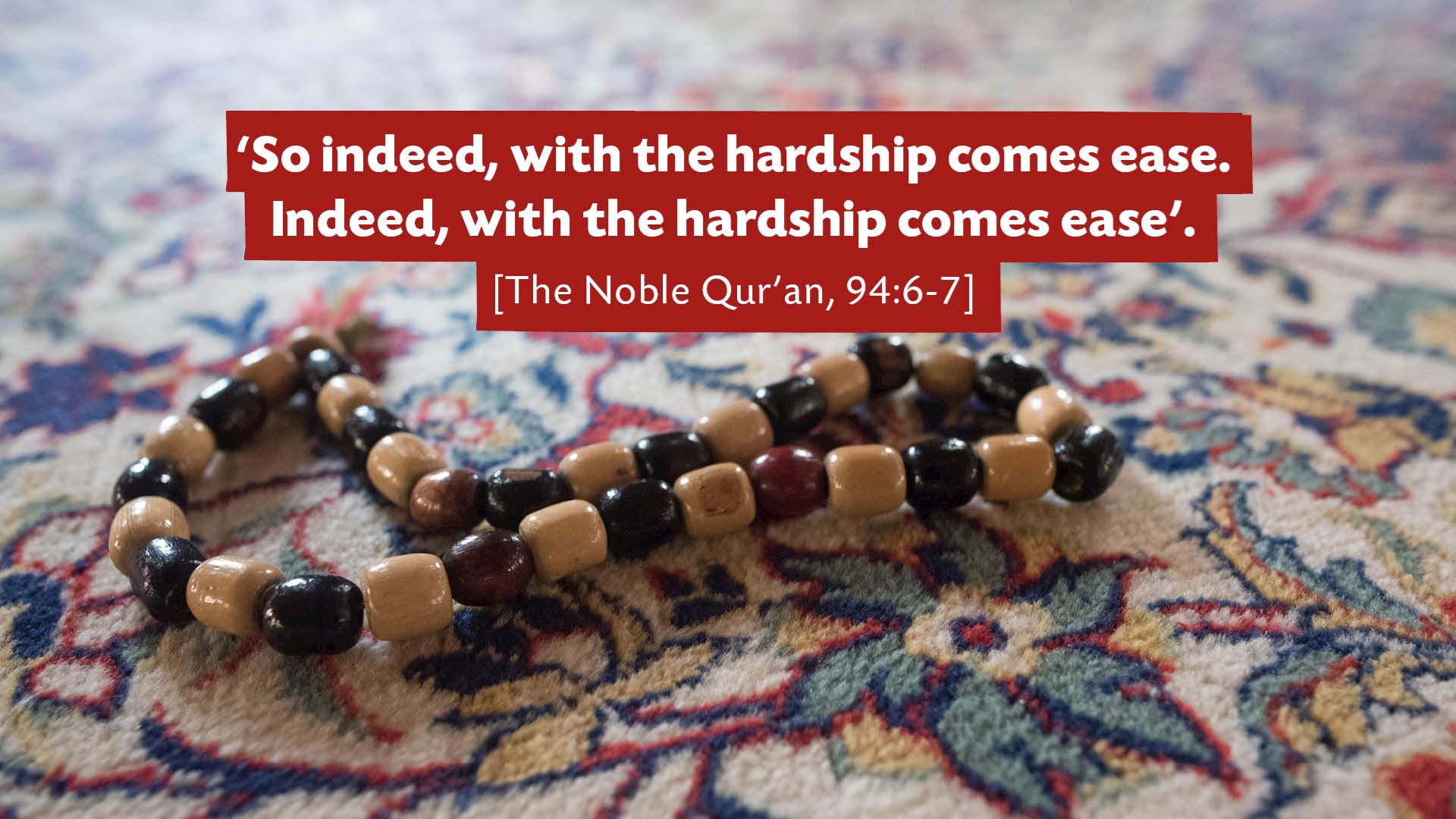
Just like the world rotates every day, the seasons change, the day moves into night and night moves into day – your emotions will also change. Nothing in this world has one constant state, except Allah. He is the One who never disappears, and He is the only One that has enabled us to feel these very special emotions.
‘And that He it is who makes (whom He wills) laugh and makes (whom He wills) weep’. [The Noble Qur’an, 53:43]
‘Special emotions?!’ you’re probably thinking. However, this isn’t an attempt to gloss over your very real and harrowing experience, nor is it to invalidate your feelings. Rather, we want to talk about how to approach your disorder as something God-given, with God-given guidance and God-given intellect in a God-given season.
Here are just a few things to consider when experiencing SAD or winter blues:
It can be an opportunity to remember Allah
When you’re feeling alone, it is the perfect time to find friendship in Allah. When you are thinking ‘Who can help me?’, it is the perfect time to lift your hands in du’a and ask Allah for help. And, as you are contemplating over His creation and reflecting on His Magnificent Existence, you may remember His divine promise to you:
‘So remember Me and I shall remember you...' [The Noble Qur’an: 2.152]
Winter can be a Muslim's spring
Wintertime means less daylight hours, but is the best time to make your scales heavy:
‘Its nights are long for him (the believer) to stand in them (in prayer) and its days are short for him to fast them’. [Ahmed]
Allah descends to the lowest heavens in the last third of the night, which is just before Fajr. Winter is the season when it is easiest to wake up right before Fajr, so why not get up a bit earlier to embrace Allah’s generosity and be closer to Him?
The fact that it is easier to attain the rewards of fasting and night prayer in winter is why, despite the physical darkness of winter, the Prophet (saw) said:
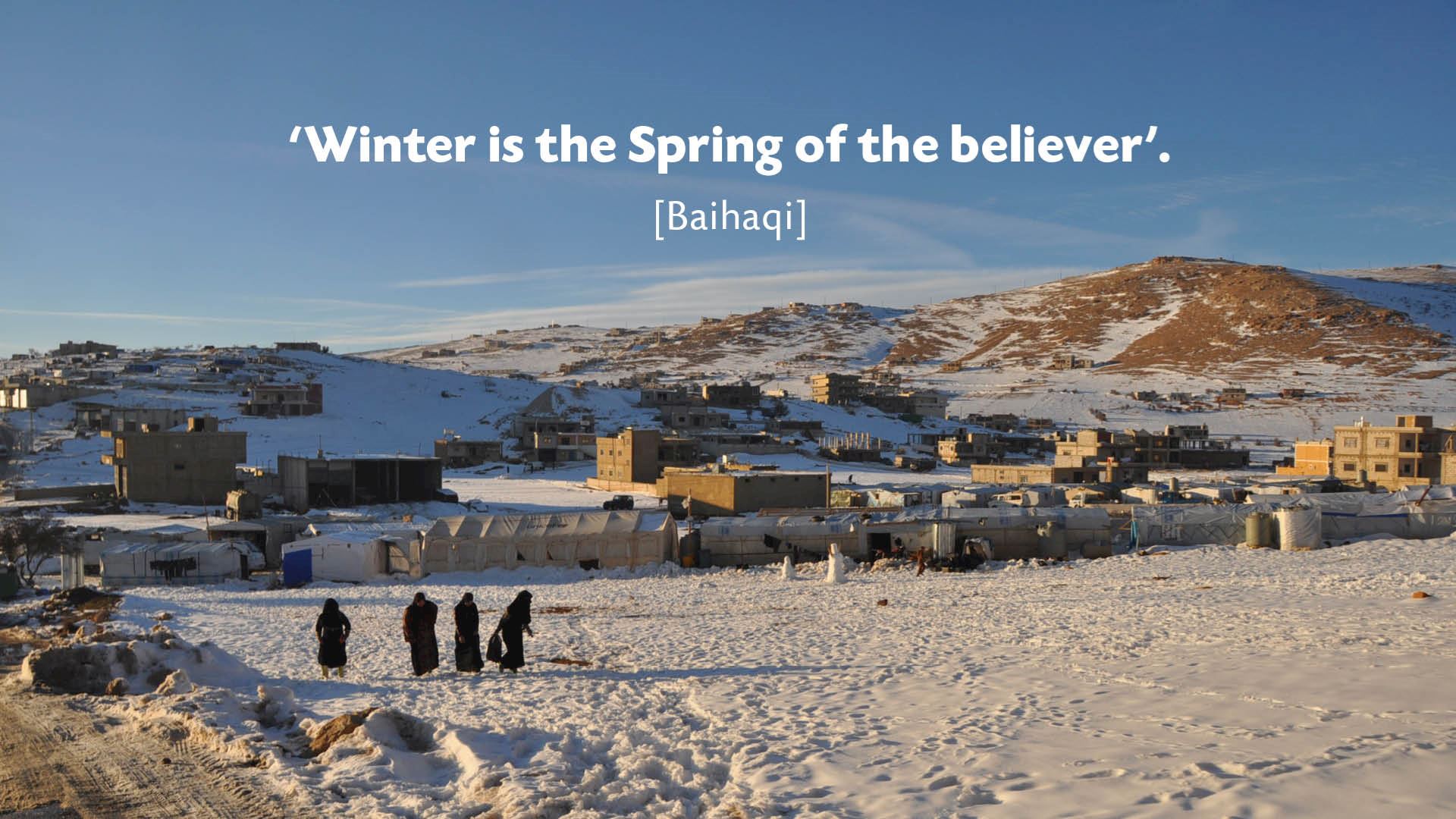
It is an invitation to draw closer to Allah
Allah has chosen for you to be vulnerable during winter. As you experience the winter blues, consider this: that Allah tests those He loves. Take your winter blues/SAD as a sign from Allah, a sign that He is literally inviting you to be closer to Him. And mindfully and heart-fully make the intention to draw closer to Allah:
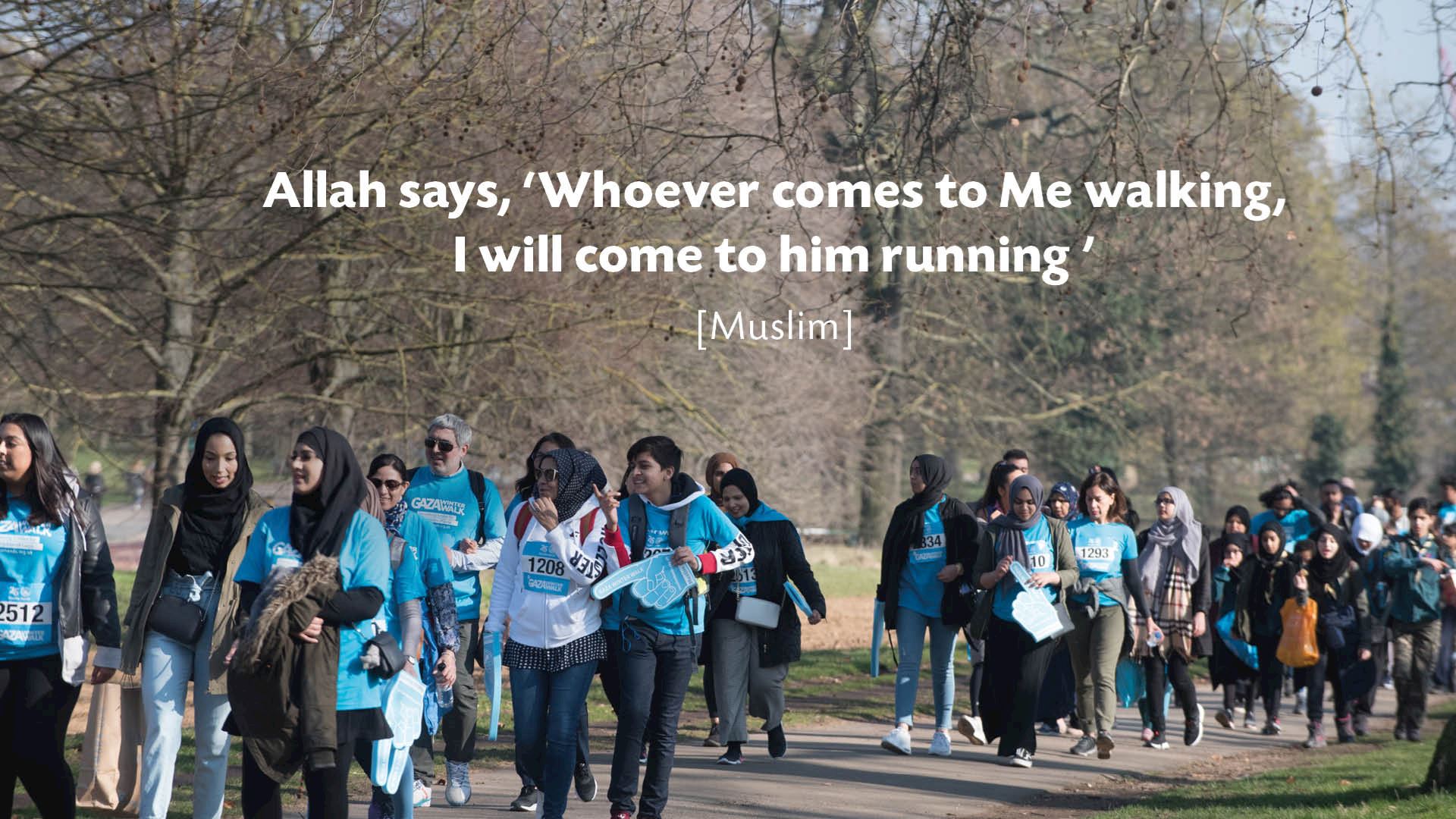
It's a chance to start tomorrow, today
Experiencing winter with the blues/SAD is the perfect time to continuously renew your intentions. The days are much shorter so, if you feel like you're falling a couple of steps back today, you only have to wait a few hours until tomorrow! The new Islamic day begins at Maghrib, when the sun sets.
At Maghrib, take the time to renew your intentions and start with a clean slate. You don’t have to sit with these heavy feelings all night and allow them to bother you right up until you sleep. Instead you can attempt to let them go. This is the perfect way to let those emotions move through you, as we mentioned earlier on. Use the evening to draw closer to Allah - re-start and re-set in preparation for tomorrow!
'He causes the night to enter the day and causes the day to enter the night, and He is Knowing of that within the breasts'. [The Noble Qur'an, 57:6]
It is the perfect time to learn how to surrender
As humans, we may think we know an awful lot about our affairs and how we work but in the grand scheme of things, what we actually know is limited. In reality, true knowledge of our affairs lies with the Almighty.
Allah always knows best, so take comfort in that. Surrender to His Qadr, knowing that even though it’s a tough situation, there is goodness in this. If nothing else, at the very least have conviction that there is goodness in all of this. Allow yourself to not know, and sit with your confusion and frustration, allow it to move through you knowing that Allah just knows.

We hope this article was of benefit for you. Please do share this article with friends and family, as the Prophet (saw) said, ‘Whoever guides someone to goodness will have a reward like one who did it’. [Muslim]
This article was originally written for the Inspirited Minds blog and has been reviewed for the use of Muslim Hands.





